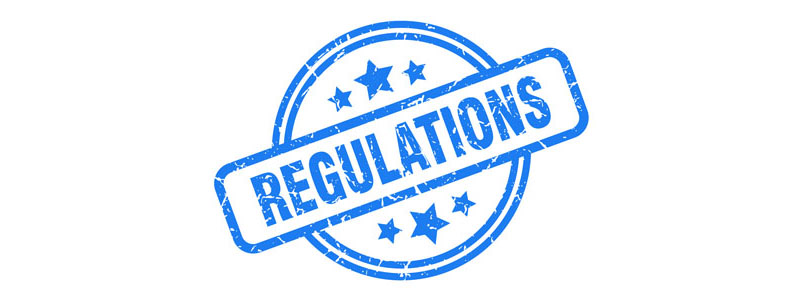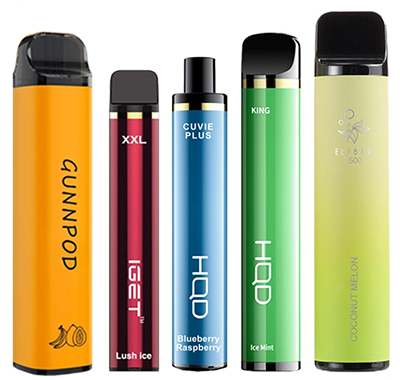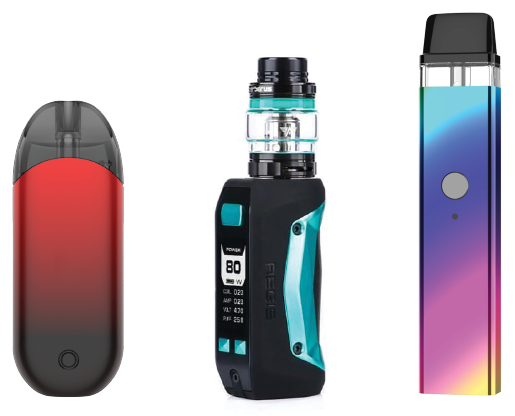
The latest regulations on vaping in Australia
Posted on January 8, 2024 By Colin
This is an up-to-date outline of the current regulations at 8 June 2024.
It is important to note that these regulations only apply to the legal market which is currently <10% of the total vape market in Australia, and is expected to reduce further.
Prescriptions
Nicotine e-liquid is classified as a medicine in Australia. A nicotine prescription from a doctor or nurse practitioner is required to legally possess or vape nicotine e-liquid.
All doctors and nurse practitioners are now allowed to prescribe nicotine without prior approval from the TGA. However very few are willing to do so. There are a number of online services now that provide prescriptions via "Telehealth".
Prescriptions are not issued automatically. Under the RACGP guidelines, “It is reasonable for medical practitioners to choose not to prescribe them”. Most doctors are skeptical about vaping and are poorly informed. Further training for health care professionals has been promised, but no details are available.
The RACGP guidelines recommend that doctors limit the prescription to a maximum of 3 months’ supply. It is recommended that patients return "for regular review and monitoring".
Premixed ‘closed’ systems are preferred to open and tank devices "so that users cannot purchase and add their own flavours".
1. Nicotine e-liquid
- Nicotine e-liquid can only be purchased legally from an Australian pharmacy with a prescription. Very few pharmacies stock nicotine vapes and a very limited range of products is available. There is a small number of online pharmacies that stock a reasonable range of products.The Personal Importation Scheme was cancelled on 1 March 2024 so it is an offence to import e-liquid from overseas for personal use, even if you have a prescription. Substantial penalties up to $313,000 apply for the importation of prohibited goods, under the Customs Act 1901 (Cth) (section 233).
Importers must obtain an import licence and permit under customs legislation.
- Flavours. Only tobacco, menthol and mint flavours are allowed.
- Nicotine concentration limit. Currently 100mg/mL. To be reduced to 50mg/mL later this year, then to be reduced to 20mg/mL 12 months later
2. Disposable vapes

The importation of single-use disposable vapes has been banned since 1 January 2024, whether they contain nicotine or not - even if you have a prescription.
3. Refillable devices (open systems)

From 1 March 2024, the importation of devices and accessories is banned unless those vapes are for supply in a pharmacy setting. A limited range of refillable devices will be available from pharmacies - a prescription is not required.
Vape shops, tobacconists and convenience stores can sell existing devices that do not contain nicotine if they were imported before 1 March 2024, until the stock runs out. Sales will no longer be allowed after the Therapeutic Goods and Other Legislation Amendment (Vaping Reforms) Bill 2024 is passed (Parliamentary vote in June 2024).
As of 1 March 2024, all vaping devices and accessories (including an unfilled cartridge, capsule, pod or other vessel) for use with a therapeutic vaping substance are covered by the therapeutic goods regulatory framework and must comply with one or more of the following
- ISO 9001 certification
- ISO 13485 certification
- Certification (or other approval) issued by an overseas regulator of compliance with the overseas regulator’s requirements for consumer grade e-cigarettes, or therapeutic vapes.
4. Nicotine-free vapes
At present, vaping products that don’t contain nicotine can be sold in regular shops, such as convenience stores, like tobacco products.
5. Standards
Basic minimum standards apply for e-liquids under the Therapeutic Goods (Standard for Nicotine Vaping Products) Order 2021 (TGO110). Updated standards (the Therapeutic Goods (Standard for Therapeutic Vaping Goods) (TGO 110) Order 2021 (TGO 110) were released in early January 2024 here.
The standards specify a range of labelling, packaging, ingredient, nicotine concentration and record-keeping requirements for nicotine e-liquids. The standards regulate nicotine as a medicine.
6. Pre-market notification
The only vaping products that can be legally imported and sold in Australia are those whose sponsor has notified the TGA that they comply with the applicable standards. Registration is free at the moment, and some products are subsequently tested by the TGA. These products are only available from pharmacies with a doctor's prescription.

The list of notified products is available on the TGA website. Over 300 products are now available, including e-liquid refills, pod vapes, prefilled pods, refillable vapes and accessories (coils).
7. Travellers' Exemption
Travellers entering Australia can bring a small quantity of vapes with them for personal use. The vapes must be for use in the treatment of the traveller or someone they are caring for, who is entering Australia on the same ship or aircraft. (see here)
The maximum allowable quantity is:
- 2 vapes in total (whether disposable or reusable)
- 20 vape accessories (including cartridges, capsules or pods), and
- 200mL of vape substance in liquid form.
8. Update to TGO110 Standards anticipated from December 2024
Packaging changes
- Pharmaceutical-like packaging and labelling. Name non promotional or designed to attract young people or new users; should not suggest a health benefit; nor resemble food or beverage
- Restrictions on the appearance of vapes. Predominately white packaging with single colour printing, coloured strip for flavour and strength; no images
- New warning statements
THIS PRODUCT CONTAINS NICOTINE, WHICH IS HIGHLY ADDICTIVE SUBSTANCE
NOT TO BE INGESTED
Restrictions on container volume
- Pods 5mL
- Refill bottles: 30-60mL
Restrictions on ingredients
- Nicotine limit 50mg/mL for 12m
Then >20mg/mL will require special approval by doctor (SAS-B)
Menthol: max 1% w/v - Other ingredients
Only nicotine, glycerol, propylene glycol, water and 3 flavours: mint, menthol or tobacco
An extended list of banned ingredients
Regulations for vaping devices and accessories
- Electrical and battery safety; toxicological assessment; plain design
9. Legislation
Currently (May-June 2024), there is a Bill before Parliament, seeking to impose a domestic ban on the
- manufacture
- supply
- advertising
- commercial possession
of all vapes to ensure comprehensive controls across all levels of the supply chain. These changes require amendments to the Therapeutic Goods Act 1989.
References
New regulation of vapes starting January 2024, 15 December 2023
Reforms to the regulation of vapes
Vapes: information for prescribers, 15 December 2023
Go to Top